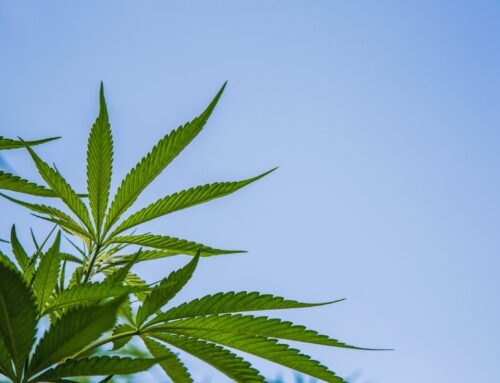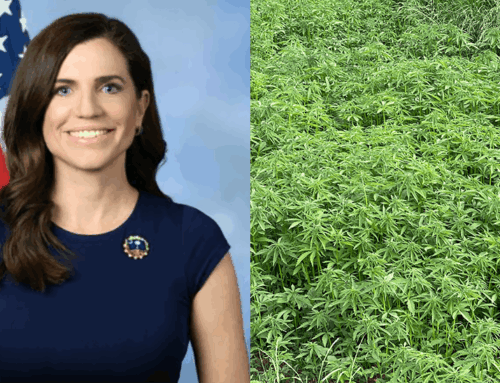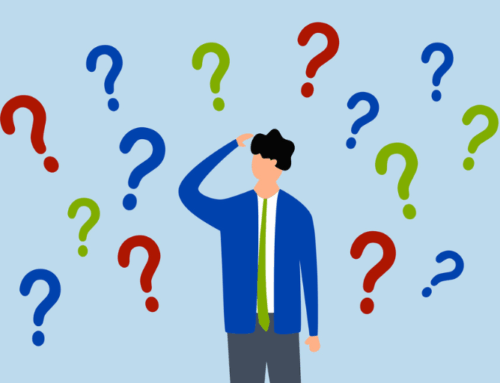Using cannabis or alcohol to fall asleep may harm sleep quality, UMich study confirms
November 19, 2025
A University of Michigan study published Oct. 13 found that while many U.S. young adults use cannabis and alcohol to induce sleep, excess use of these substances may be problematic and actually further disrupt sleep cycles.
In an email to The Michigan Daily, Megan Patrick, lead author and principal investigator of the Monitoring the Future study, described the survey process for the study.
“We looked at data provided on web-based and paper surveys from young adults around the country,” Patrick wrote. “We asked them about their reasons for using cannabis and for using alcohol, including whether they used each substance ‘to get to sleep.’”
Patrick’s research surveyed 1,473 young adults, with about 22% of respondents reporting they had used cannabis or alcohol as a sleep aid within the past year. Patrick wrote certain demographics were also more inclined to turn to substances to aid sleep.
“We found that women were more likely to use cannabis to get to sleep than men,” Patrick wrote. “We also found that Black young adults were more likely to use alcohol to get to sleep than White young adults.”
According to Patrick, there was a correlation between people who use these substances every day and those who use them to go to sleep.
“Young adults who use every day or nearly every day were more likely to use that substance to get to sleep, for both cannabis and for alcohol,” Patrick wrote.
Patrick wrote the research is important because the need for sleep aids is a common reason why young adults turn to cannabis and alcohol, a relationship she feels doctors should understand and address.
“The key takeaway from this research is that using substances to sleep is prevalent among young adults in the US,” Patrick wrote. “That means that a lot of young adults seem to be using substances to deal with their sleep problems. It’s important for healthcare providers to be aware of this, including how substance use and sleep problems are related.”
In an interview with The Daily, Jerry Millen, owner of local dispensary Greenhouse of Walled Lake, said people have become more dependent on cannabis following the COVID-19 pandemic.
“Let’s be honest, the world’s crazy now,” Millen said. “During (the COVID-19 pandemic), we were seeing 1,500 cars a day at our dispensary, because people were stressed out, and cannabis is a great way to relax.”
Millen said he is concerned that youth do not understand the effects substance use can have on developing brains due to a lack of education on the topic. He said President Donald Trump’s administration is attempting to label cannabis as a Schedule III narcotic, meaning it has less potential for abuse, rather than a Schedule I, which will hopefully encourage the Drug Enforcement Administration to conduct studies on the substance.
“Our education around cannabis isn’t what it should be,” Millen said. “People need to get educated on its uses and its positive uses, and because right now (cannabis is) a Schedule I narcotic, and the Trump administration has said by the end of the year, it’s going to become a Schedule III, which is great, because right now, it’s very hard to do studies on cannabis. You have to go through the DEA. They’re not okay with a lot of stuff.”
Courtney Hulse, director of outpatient services at Mountainside, an addiction treatment center, told The Daily using substances as a sleep aid is often a short-term fix for broader problems regarding sleep hygiene.
“It’s a quick fix, and we get instant gratification because we need sleep,” Hulse said. “I would say, if it’s a pattern, seek some degree of a professional, whether it’s a therapist or a medical doctor. Find a medically supervised way of getting back on track, and then hopefully figure out other more natural and sustainable actions that can be taken to help support your sleep hygiene.”
Hulse warned that the addiction treatment industry has seen an increase in marijuana-related hospital admissions among young adults which professionals in the field are still trying to understand.
“I’ve seen, especially in the past five years, that when it comes to young adults and marijuana use, there has been a huge uptick in psychosis,” Hulse said. “People are admitting to hospitals being in active psychosis that had no history of psychosis before, and the thing that caused it, or what they’re seeing that sparked it, is marijuana use. We’re trying to understand a bit more about this.”
Hulse also said it’s common for people to drink more than the body can digest, and that this overconsumption of alcohol can worsen quality of sleep and increase anxiety.
“Now what you experience is this feeling of anxiety because your body had to counteract the (alcoholic) depressant,” Hulse said. “So what normally happens is people report that they may have a couple of drinks to help them go to sleep, but that they’re tossing and turning. It’s not a restful sleep. They’re not waking up feeling rejuvenated.”
In an interview with The Daily, an Engineering junior, who requested to be anonymous and will be referred to as Blake in this article, explained they previously used marijuana daily as a sleep aid to manage their anxiety.
“Weed definitely slowed down my thought process and put me into a kind of calmer state, and allowed me to just kind of drift off into that sleepy state,” Blake said.
Blake explained that, despite feeling dependent on marijuana for inducing sleep, they reduced their usage because the side effects began to inhibit their productivity.
“I would definitely say I was reliant on it at a certain point to sleep,” Blake said. “But it mostly had to do with kind of the feeling of grogginess that I would get sometimes when I would wake up in the morning after using weed that would just really inhibit my productivity for the next day.”
Daily Staff Reporters Emma Sulaiman and Lulu Suk can be reached at emmasul@umich.edu and lsuk@umich.edu.
Search
RECENT PRESS RELEASES
Related Post




